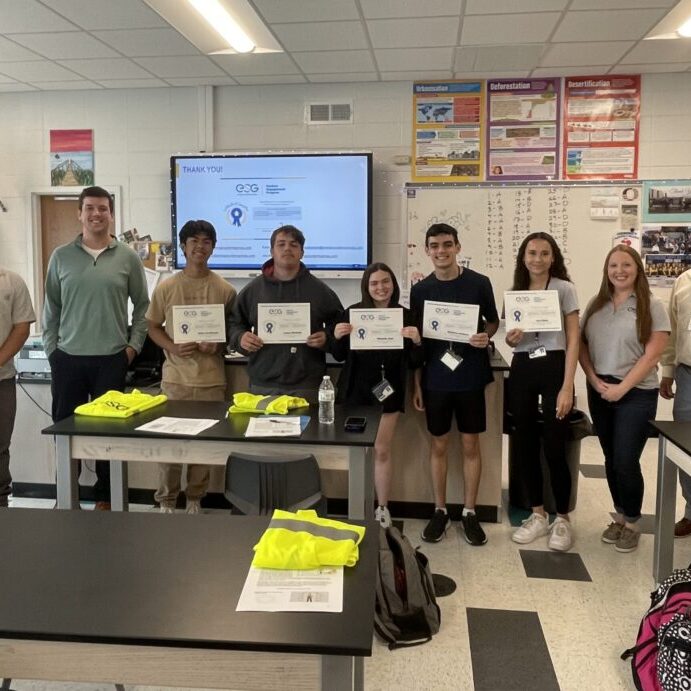Securing funding for energy-efficiency, sustainability, or resiliency projects can be a major barrier for you. We understand the challenges you face in finding the necessary resources. That’s why we’re here to help you explore grants, incentives, and rebates. This guide helps you overcome funding obstacles and achieve your project goals. Whether you’re in the public sector or pursuing environmental initiatives, we’ve got you covered. Let’s unlock the possibilities together!
Exploring Potential Grants
Grants are instrumental in providing support to various industries and initiatives focused on sustainability. One program that is currently gaining significant attention is the Investment Tax Credit (ITC) under the Inflation Reduction Act. This program specifically benefits public sector entities that were previously unable to take advantage of tax incentives. The Delta Regional Authority provides financial assistance to rural areas facing economic challenges, and there are potential grants and funds from the USDA for promoting economic development in rural regions. These initiatives collectively contribute to the growth and sustainability of different sectors.
Investment Tax Credit Benefits:
- Financial incentives like offsetting costs of sustainability projects
- Expanded eligibility to public sectors that were unable to benefit from tax incentives previously. Public sector entities can claim a refund for the investment tax credit by filing an annual tax return with the IRS, as long as they meet all requirements, including pre-filing registration. The IRS will then make a refund payment to the local government, as they are not subject to federal income tax. It is important to note that the regulations are not final. It is possible the final regulations could be out by the end of 2023.
- Long-term cost savings for your business through energy-efficient and renewable energy projects
- Encourages businesses and organizations to adopt sustainable practices and makes these upgrades a financially viable option
- Meet carbon footprint reduction goals and an overall impact on the environment with greener upgrades
Delta Regional Authority Funding:
- Funds are specifically available to rural areas facing unique economic challenges
- Designed to stimulate economic growth, create jobs and attract investments that can revitalize local economies
- Supports infrastructure and sustainable projects like water and wastewater systems, renewable energy initiatives, and business development
- Funds community entities like healthcare, education, and cultural preservation, fostering partnerships for positive change in the Delta region.
Exploring Incentive Programs
Incentive programs offer invaluable support for project implementation. Public sector entities can access ‘free money’ through matching grants, combining incentives, and reallocating budget inefficiencies. By taking advantage of these programs, public sector entities can overcome financial barriers and make their sustainability projects a reality. Here are some key aspects to consider:
- Matching grants: Incentive programs often require a matching contribution from the participating entity. You can secure funding by providing a portion of the project cost that is matched by the grant. This allows them to maximize the financial support available and implement impactful sustainability initiatives.
- Combining incentives: Public sector entities can explore multiple incentive programs simultaneously to unlock additional funding opportunities. By combining incentives like grants, rebates, and tax credits, entities can maximize financial benefits and stretch their budgets further.
- Budget reallocation: In some cases, public sector entities can redirect inefficiencies within their existing budgets to fund sustainability projects. By reallocating saved funds, entities can promote energy efficiency, renewable energy adoption, and other environmental improvements.
Utility rebates for energy conservation are widely available, allowing public sector entities to offset upfront costs of implementing energy-saving technologies. These rebates significantly improve the affordability and feasibility of sustainability projects. With the growing demand for power and increasing government pressure on utilities, more incentives are expected in the future, providing additional funding opportunities. Staying informed and proactive in exploring evolving incentive programs will be crucial for maximizing financial support and driving impactful change.
Rebates for Sustainable Projects
Utility companies and government entities are keen on promoting energy efficiency and offer enticing rebates to incentivize the adoption of energy-saving technologies. By taking advantage of these rebates, you can significantly offset the upfront costs of your sustainability projects and improve their overall affordability. Here are some key aspects to consider:
- Wide range of rebates: Utility companies and government entities offer a wide range of rebates tailored to different energy-saving technologies. These can include rebates for energy-efficient appliances, HVAC systems, lighting upgrades, insulation improvements, and more. By exploring these programs, you can identify specific rebates that align with your project needs and maximize your financial benefits.
- Electric switches and incentives: One notable area where public entities have embraced rebates is in the adoption of electric switches, such as heat pumps and electric hot water systems. Utility companies often offer attractive rebates to encourage the transition to these energy-efficient alternatives. By leveraging these incentives, you can not only reduce your project costs but also contribute to a greener and more sustainable future.
- Financial savings and environmental impact: Participating in rebate programs not only helps you save money on your project expenses but also contributes to energy conservation and environmental sustainability. By adopting energy-saving technologies, you can reduce energy consumption, lower utility bills, and decrease greenhouse gas emissions. These combined benefits make rebates an appealing opportunity to enhance your project’s financial feasibility while making a positive environmental impact.
- Streamlined application processes: Utility companies and government entities have streamlined the application processes for rebates, making it easier for public entities to participate. Online application portals and clear guidelines simplify the process of applying for rebates, ensuring a smoother experience for project initiators. Additionally, some utility companies may provide resources and support to help you navigate the rebate application and ensure you meet the necessary criteria.
Don’t miss out on this valuable opportunity to leverage rebates and improve the affordability of your sustainability projects. By exploring the available rebates offered by utility companies and government entities, you can maximize your financial benefits, reduce project costs, and accelerate the implementation of energy-saving technologies.
Navigating the Application Process
The application process can serve as yet another barrier to overcome as you take on these complex projects. Here are just some of the steps that you’ll need to look at:
Identifying Eligible Programs:
Researching and identifying grants, incentives, and rebate programs tailored to your industry or project type is crucial. While we’ve gone over a few, there are so many more that can be considered for your project. Our team at Energy Systems Group is committed to proactively supporting you by staying updated on available opportunities and partnering with you to apply for the right opportunities.
Understanding Application Requirements:
Grant applications require thorough understanding and strategic alignment. Our expertise lies in helping you find the sweet spot for grants, aligning projects with your needs, and navigating the political landscape for successful applications. It’s important to consider the potential strings attached to “free money,” such as procurement regulations, applicable uses, reporting, and the “buy American” requirement. We’ll guide you through these complexities to ensure a smooth process.
Navigating the Submission Process:
Preparing and submitting grant or incentive applications requires a step-by-step approach. We’ve outlined the general path to success, which involves collaboration with our team from start to finish. We’ll assist you throughout the process, including installation and back-end reporting, to maximize your chances of securing funding.
Real-World Examples and Impacts

Our team recently won a bid to install energy efficient LED lighting at the community ball fields in Trimble County, KY with the help of funding from [funding source]. The new lighting will ultimately reduce energy consumption while improving visibility for evening games and practices. Trimble County residents are excited for the enhancements that will allow the parks to host larger tournaments and become an even greater community asset.

Pea Ridge secured $4.6 million in grants and partnered with ESG to fund their project’s other $2.8 million through energy savings contracting. These updates improved learning environments, boosted resilience, and ensured financial sustainability through energy savings and grants.

Schools in Tennessee have access to generous Tennessee Valley Authority EnergyRight incentives. ESG has facilitated over $2 million in documented TVA incentives for K-12 projects, helping districts upgrade facilities while optimizing energy budgets.
What We Have Learned
Through our project experiences, we have gained valuable insights into the challenges faced when securing funding. Collaborating closely with customers, aligning projects with their needs and grant requirements, and navigating the political aspects of grant acquisition are key factors for success. With our expertise in sales and procurement, we ensure that the process is conducted in a transparent and compliant way. Additionally, our Tax-Exempt Installment Purchase agreement allows for group purchasing, further optimizing the financial benefits for public sector entities. By combining grants with Energy Savings Performance Contracts (ESPC) and other various funding sources, we have been able to make significant and lasting improvements to public sector entities, amplifying the positive impact on their sustainability initiatives.
Collaborate with Us to Bring Your Vision to Life
Understanding available grants, incentives, and rebates is essential for unlocking funding opportunities and bringing sustainability projects to life. Our team at [Your Organization] is dedicated to helping you navigate this landscape, offering expertise and support at every step. Together, we can leverage these resources to make a lasting impact on your organization and the environment. Get started today by exploring the wide range of opportunities waiting for you!
Municipal Advisor Disclaimer Statement
ESG is as an engineering and energy services firm that designs and delivers energy-related and other infrastructure solutions. ESG is not a financial advisor or municipal advisor in the context of the Dodd-Frank Wall Street Reform and Consumer Protection Act as contemplated under the U.S. securities laws, and none of the information provided herein is intended as, or should be considered as, a recommendation of any particular financing structure or financial advice regarding any municipal financial product or the issuance of municipal securities under section 15B of the Securities Exchange Act, or otherwise.



